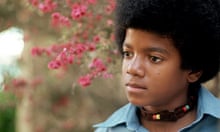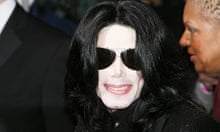A doctor who has apparently gone missing after treating Michael Jackson before his sudden death is being sought by the Los Angeles police and coroner's office.
The doctor's car, which was left outside Jackson's rented mansion in Bel Air, has been impounded. A police spokesman said they wanted to talk to Dr Conrad Murray, a cardiologist who practises in California, Nevada and Texas, because he had not signed a death certificate, as is normal procedure. It was reported last night that police were in contact with Murray.
Speculation was mounting that the star's death may be linked to his longstanding use of painkillers. Family friends have confirmed he was taking drugs to help him deal with the stress of preparing for his series of London concerts.
Last night the Los Angeles coroner said initial examination of the body indicated "no foul play or external trauma". He said a ruling on the cause of death would be deferred for detailed toxicology and neuropathology tests, which could take between four and six weeks.
The singer's body was released to his family late last night and was taken to a mortuary at their request. The family have yet to confirm their plans for the 50-year-old's funeral.
Charlie Beck, the assistant chief of the Los Angeles police department, said it was "way too early" to draw any conclusions about Jackson's death.
He said the doctor's car was seized because it may contain drugs or other evidence. Beck said officers had spoken to the doctor immediately after Jackson's death but wanted to carry out "an extensive follow-up interview".
"I'm confident that will happen," he said.
Media reports have suggested that Jackson, 50, was injected with a morphine-like drug shortly before he collapsed and went into cardiac arrest. He was pronounced dead shortly after being taken to a Los Angeles hospital on Thursday.
Last night, his good friend Liza Minnelli suggested the postmortem examination might provide uncomfortable revelations. "When the autopsy comes, all hell's going to break loose, so thank God we're celebrating him now," she told CBS.
Also last night, the transcript of the 911 call made from Jackson's house was released to the media. In it, a caller says Jackson is not breathing and is being given CPR [cardiopulmonary resuscitation] by a personal doctor. "He's pumping and pumping his chest. He's not responding to anything," the caller tells an emergency operator. The male caller, who has not been identified, tells the dispatcher the doctor was the only one with Jackson when he became distressed.
Brian Oxman, a Jackson family lawyer, confirmed that the star had been taking drugs to deal with a variety of pain problems. He said there had been longstanding concerns about Jackson's drug use and the people he had surrounded himself with.
"I do not know the extent of the medications that he was taking, but the reports we have been receiving in the family are that it was extensive. This is something that I feared. This family has been trying for months to take care of Michael Jackson. The people who have surrounded him have been enabling him." Enabling is a psychological term for allowing or helping a person to continue their addiction.
TMZ, the website that reported Jackson's demise within 15 minutes of the official time of death, reported yesterday that the star received an injection of the painkiller Demerol on Thursday morning.
The Los Angeles police department would not comment on the report about the injection and would not name the doctor. They confirmed they impounded the car because "it may contain medications or evidence that may assist the coroner in determining the cause of death".
An LAPD spokesman stressed the doctor is not under criminal investigation: "When an attending physician is unwilling or unable to sign a certificate, it immediately triggers a coroner's investigation. It's now part of the overall investigation."
Jackson had a long history of taking painkillers, including Demerol. Medical experts said Demerol could lead to the sort of cardiac arrest suffered by Jackson, particularly if taken with other drugs.
Jackson's brother Jermaine told a news conference that the doctor – the one sought – made extensive efforts to revive Jackson 40 minutes or so before an ambulance came to take him to the University of California medical centre, a few minutes' drive away. Jermaine Jackson described how paramedics continued to try to revive Michael in the ambulance and how staff at UCLA did the same thing.
"Upon arriving at the hospital at 1.14pm a team of doctors, including emergency physicians and a cardiologist, worked to resuscitate him for a period of more than one hour but were unsuccessful," he said. Jackson was pronounced dead at 2.26pm, two hours and four minutes after the emergency call.
He had been rehearsing hard for a 50-date concert residency at the O2 arena in London starting on 13 July. Colleagues who saw him at his last rehearsal said he showed no signs of major distress, although he looked thin and frail.
Family and members of his concert entourage had expressed concern over the past two months that Jackson was not physically up to the tour. The first concert was put back by six days.


